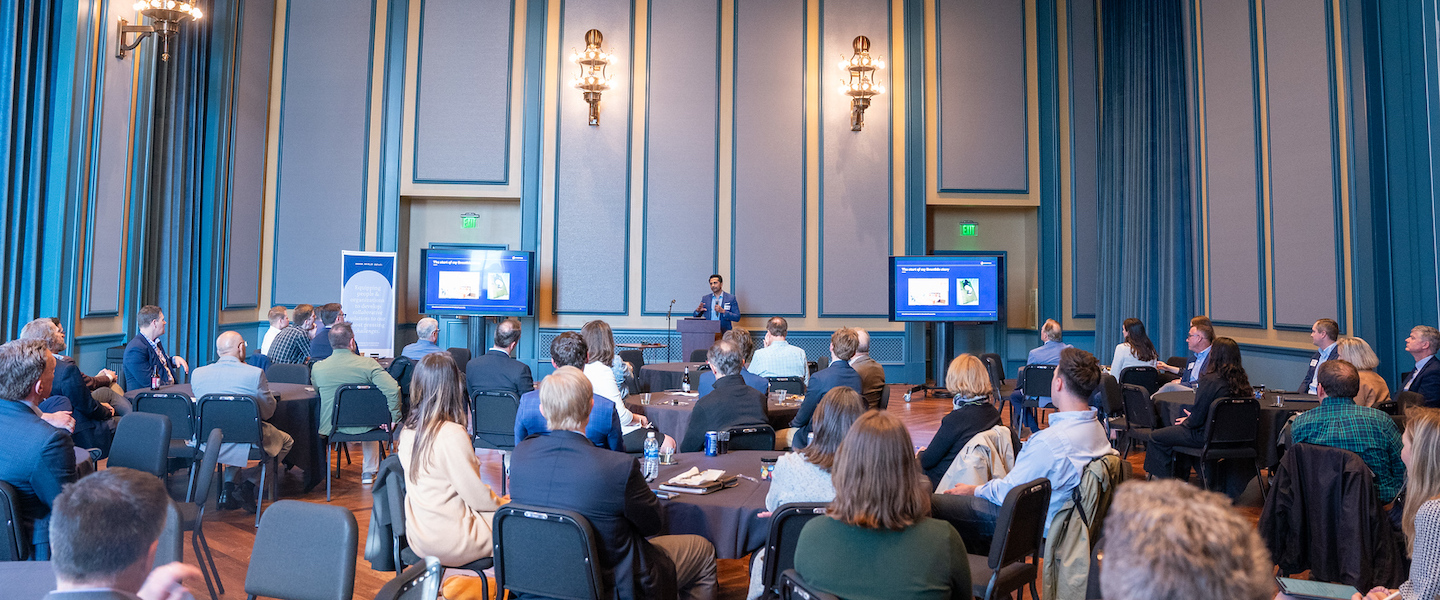Impact Table Event Hosts Robin John of Eventide
FLAME-BEARER FOR FAITH-BASED INVESTING
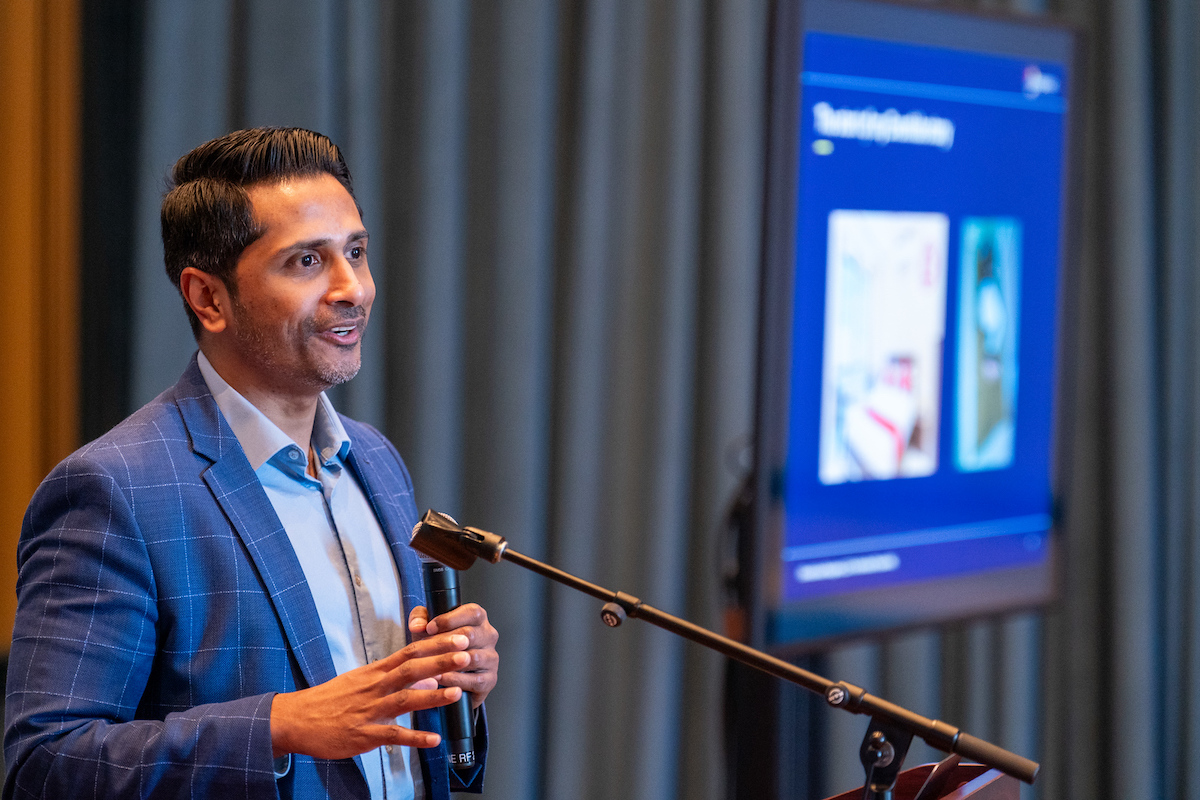 The Nashville Impact Table community joyfully hosted Robin John March 19 to learn about his story of co-founding Eventide. As introduced by advisor Paul Wallace, John is a “flame-bearer for faith-based investing,” lighting the way for impact leaders who aspire to do good through their resource deployment.
The Nashville Impact Table community joyfully hosted Robin John March 19 to learn about his story of co-founding Eventide. As introduced by advisor Paul Wallace, John is a “flame-bearer for faith-based investing,” lighting the way for impact leaders who aspire to do good through their resource deployment.
Through the event, John shared the following about the origins of Eventide, his philosophy toward values-driven investing and his advice on reflecting upon how to invest in what you stand for.
INVESTING THAT MAKES THE WORLD REJOICE
While featuring one of the greatest taglines of all time, “investing that makes the world rejoice,” the founding story of Eventide didn’t begin with rejoicing. Born in India, immigrating to the U.S. at age eight and working multiple jobs to support his family during his upbringing, John knew hardship and hard work from a young age. As a 20-something, John found himself jobless, sleeping in his parents’ basement and spending long, arduous evenings crying out to God at the altar of the basement washing machine on the prayer bench of the cold cement floor.
After graduating from Tufts University and working a corporate job, John had become sorely disenchanted with corporate disinterest in the impacts of business on society. During a jarring experience in India, he was confronted with brutal realities of global poverty alongside the unyielding business interests of maximizing profits, whatever the cost.
In the midst of this season of discernment, John encountered Dr. Finny Kuruvilla at a local house church in Boston. The two instantly connected and started to fast, pray and dream together. Proverbs 11:10, "when the righteous prosper, the city rejoices," became their guiding light, and together they began to wonder what investing to make the city rejoice would look like. Captivated by this revolutionary concept, John and Kuruvilla boldly asked and imagined how to invest in ways that would serve the community and uplift the poor.
Ultimately, John and Kuruvilla launched Eventide in 2008 as an asset management firm that would develop mutual fund products with a faith-filter for investing. Today, Eventide has approximately $7B under management.
EXPOSING OUR BLIND SPOTS
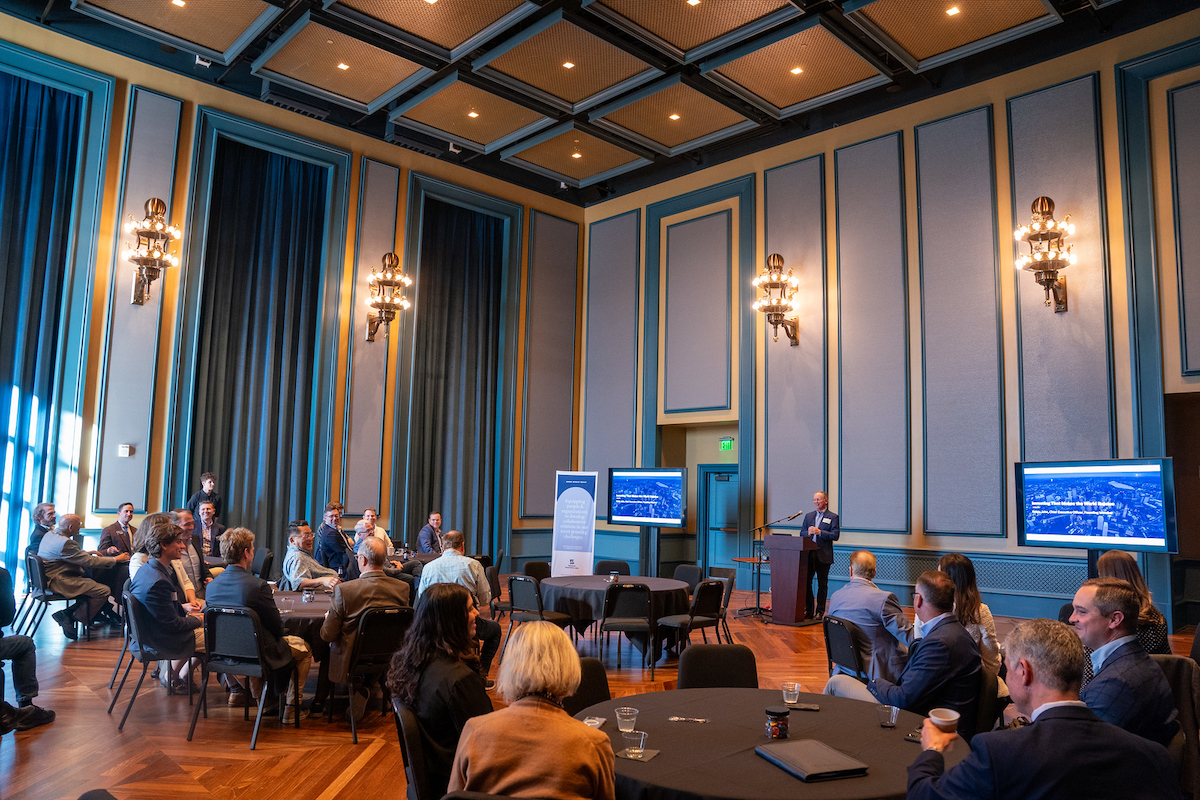 John Wesley, the renowned founder of Methodism, wrote in his 1789 sermon, “The Use of Money,” to “earn all you can, save all you can, give all you can.” But what many Christians miss is his clarifying point about earning: “we ought not to gain money at the expense of life, nor (which is in effect the same thing) at the expense of our health.”
John Wesley, the renowned founder of Methodism, wrote in his 1789 sermon, “The Use of Money,” to “earn all you can, save all you can, give all you can.” But what many Christians miss is his clarifying point about earning: “we ought not to gain money at the expense of life, nor (which is in effect the same thing) at the expense of our health.”
Proverbs 10:2 says, “Ill-gotten gains do not profit, but righteousness delivers from death.” Eventide is bullish about evaluating investments to ensure they are not at the cost of life or health nor are they ill-gotten gains.
John suggests that many people of faith or values-based investors, “could not tell you the top 10 holdings of their mutual funds.” They may be profiting from the plunder of others, unknowingly.
As an example, John shared the staggering statistics around tobacco use in impoverished countries. Tobacco companies employ corrupt practices, like handing out free cigarettes to children with the goal of getting them addicted. Shockingly, a recent NIH study estimates that 770M people of the 1B currently smoking will die from tobacco-related causes.
Most, if not all, values-based investors would say they would NOT choose to invest in the tobacco industry. According to John, “One of the largest state 529 plans, the Virginia529, has a top holding in tobacco.” Unknowingly, parents who are trying to save for their own children’s college tuition are simultaneously contributing to the plunder of some of the poorest kids in the world. While this is not intentional, it has real consequences. Exposing blind spots is crucial for aligning investments with values.
CLINGING TO WHAT IS GOOD AND KNOWING WHAT YOU ARE FOR
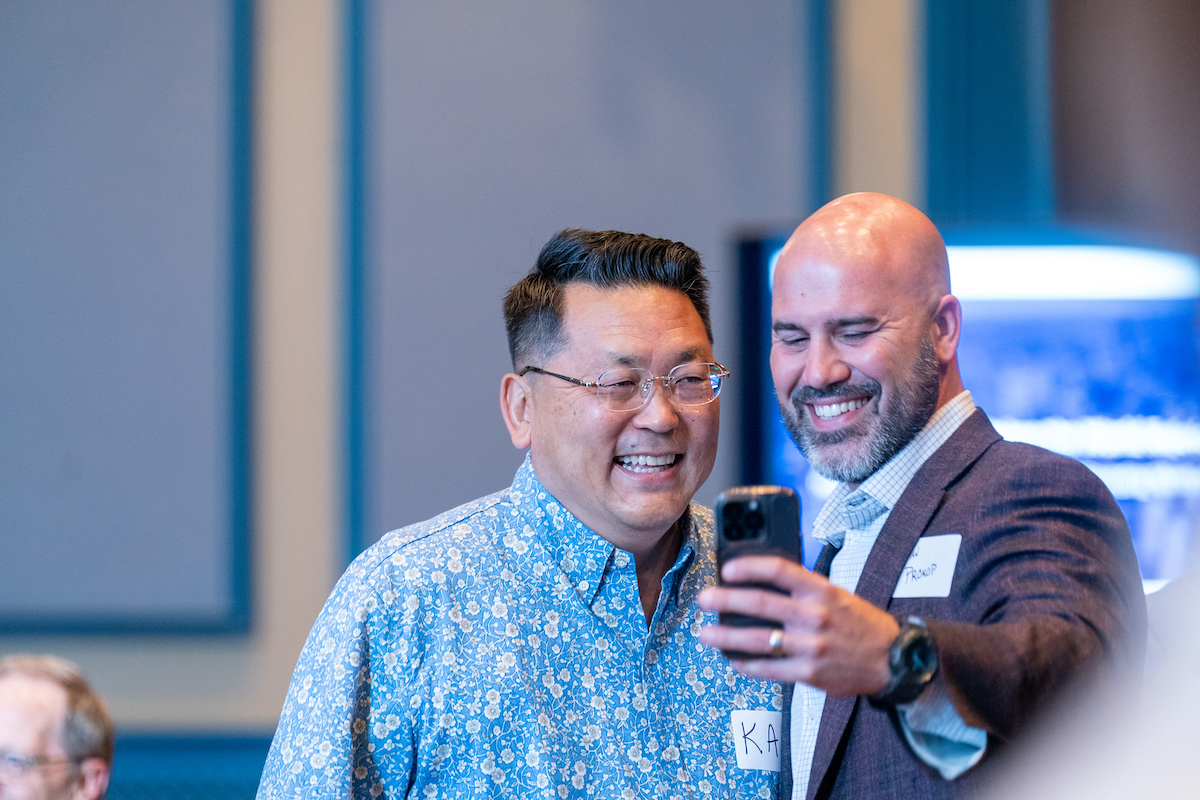 Values-driven investors have traditionally stopped at “avoiding harmful investments.” What sets Eventide apart is going beyond merely avoiding and instead embracing organizations that promote human flourishing. An early mentor, Tim Weinhold, challenged founding members John and Kuruvilla to not just articulate what they are against, but rather, to name clearly what they are FOR.
Values-driven investors have traditionally stopped at “avoiding harmful investments.” What sets Eventide apart is going beyond merely avoiding and instead embracing organizations that promote human flourishing. An early mentor, Tim Weinhold, challenged founding members John and Kuruvilla to not just articulate what they are against, but rather, to name clearly what they are FOR.
Eventide’s stated values:
- We believe in respecting the life and the dignity of all people.
- We believe in preserving justice and peace.
- We believe in the importance of family and community.
- We believe in responsible management practices.
- We believe in environmental stewardship.
Eventide started asking, “Where should Christians allocate capital?” This changed the trajectory of their business.
LOVING OUR NEIGHBORS THROUGH INVESTMENTS
A common refrain of the Impact Table discussion was: when you invest, you are rooting for that company.
So, what are you rooting for? Who are you rooting for?
As Eventide built their Business 360 framework, they defined their neighbors in six areas:
- customers
- employees
- supply chain
- communities
- environment
- society
They created a rigorous tool to evaluate their investment opportunities through this expansive lens.
Their diligence process is layered and comprehensive to enable this type of analysis. With approximately $7B under management, Eventide is enabling investors to activate their capital toward meaningful causes in the world.
Eventide is rooting for businesses that love their neighbors well – all of them.
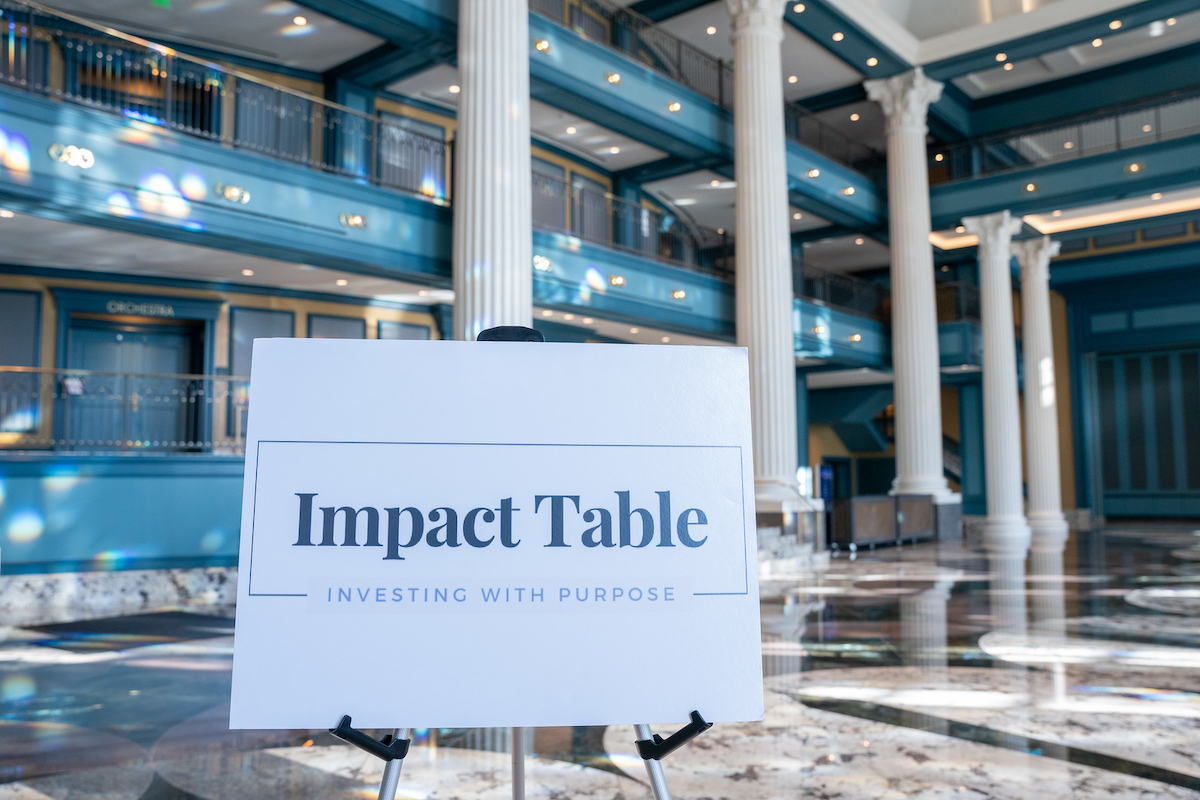
Reflection Questions
- What are you rooting for with your investments of time, skills and financial resources?
- If you were known for what you were “for” (and not against), what would that be? In other words, what are you for?
- If you evaluated your own workplace on a scale from 1-5, how well do they care for their customers, employees, supply chain members, communities, the environment and society?

